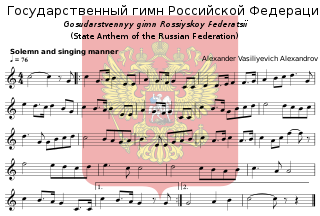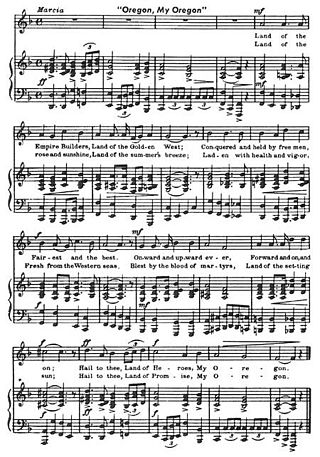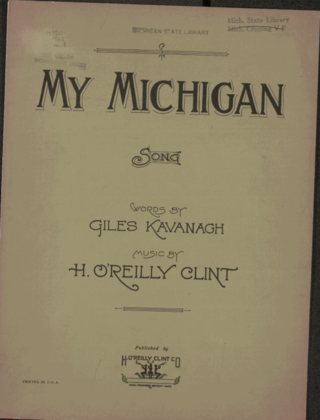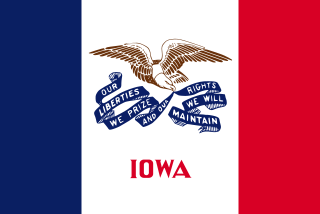Related Research Articles
An anthem is a musical composition of celebration, usually used as a symbol for a distinct group, particularly the national anthems of countries. Originally, and in music theory and religious contexts, it also refers more particularly to short sacred choral work and still more particularly to a specific form of liturgical music. In this sense, its use began c. 1550 in English-speaking churches; it uses English language words, in contrast to the originally Roman Catholic 'motet' which sets a Latin text.

"God Save the King" is the national anthem of the United Kingdom and the royal anthem of each of the British Crown Dependencies, one of two national anthems of New Zealand since 1977, and the royal anthem of most Commonwealth realms. The author of the tune is unknown and it may originate in plainchant, but an attribution to the composer John Bull has sometimes been made.

"The Star-Spangled Banner" is the national anthem of the United States. The lyrics come from the "Defence of Fort M'Henry", a poem written on September 14, 1814, by 35-year-old lawyer and amateur poet Francis Scott Key after witnessing the bombardment of Fort McHenry by British ships of the Royal Navy in Outer Baltimore Harbor in the Patapsco River during the Battle of Baltimore in the War of 1812. Key was inspired by the large U.S. flag, with 15 stars and 15 stripes, known as the Star-Spangled Banner, flying triumphantly above the fort during the U.S. victory.

The "Londonderry Air" is an Irish air that originated in County Londonderry, first recorded in the nineteenth century. The tune is played as the victory sporting anthem of Northern Ireland at the Commonwealth Games. The song "Danny Boy" written by English lawyer Fred Weatherly uses the tune, with a set of lyrics written in the early 20th century.

The "State Anthem of the Russian Federation" is the national anthem of Russia. It uses the same melody as the "State Anthem of the Soviet Union", composed by Alexander Alexandrov, and new lyrics by Sergey Mikhalkov, who had collaborated with Gabriel El-Registan on the original anthem. From 1944, that earliest version replaced "The Internationale" as a new, more Soviet-centric and Russia-centric Soviet anthem. The same melody, but without any lyrics, was used after 1956. A second version of the lyrics was written by Mikhalkov in 1970 and adopted in 1977, placing less emphasis on World War II and more on the victory of communism, and without mentioning Joseph Stalin by name.

"Rise, O Voices of Rhodesia" was the national anthem of Rhodesia and Zimbabwe Rhodesia between 1974 and 1979. The tune was that of "Ode to Joy", the Fourth Movement from Ludwig van Beethoven's Ninth Symphony, which had been adopted as the official European continental anthem by the Council of Europe in 1972. The music used in Rhodesia was an original sixteen-bar arrangement by Captain Ken MacDonald, the bandmaster of the Rhodesian African Rifles. A national competition was organised by the government to find an appropriate set of lyrics to match the chosen tune, and won by Mary Bloom of Gwelo.
"Home on the Range" is a classic cowboy song, sometimes called the "unofficial anthem" of the American West. Dr. Brewster M. Higley of Smith County, Kansas, wrote the lyrics as the poem "My Western Home" in 1872 or 1873, with at least one source indicating it was written as early as 1871.

"Oregon, My Oregon" is the regional anthem of the U.S. state of Oregon. Written for a song contest in 1920, the 16-line, 2-verse song became the state's official state song in 1927.

"O Tannenbaum", known in English as "O Christmas Tree", is a German Christmas song. Based on a traditional folk song that was unrelated to the holiday, it became associated with the traditional Christmas tree.

"Maryland, My Maryland" was the state song of the U.S. state of Maryland from 1939 until 2021. The song is set to the melody of "Lauriger Horatius" — the same tune "O Tannenbaum" was taken from. The lyrics are from a nine-stanza poem written by James Ryder Randall (1839–1908) in 1861. The state's general assembly adopted "Maryland, My Maryland" as the state song on April 29, 1939.
Wisconsin State College of Milwaukee was a predecessor institution of the University of Wisconsin–Milwaukee.

"Rufst du, mein Vaterland" is the former national anthem of Switzerland. It had the status of de facto national anthem from the formation of Switzerland as a federal state in the 1840s, until 1961, when it was replaced by the Swiss Psalm.

"Ich hab mich ergeben", originally titled "Gelübde" ("Vow"), is a German patriotic song. The text was written in 1820 by Hans Ferdinand Maßmann. It was one of the unofficial national anthems of West Germany from 1949 until 1952, when the "Deutschlandlied" was officially reinstated. Its tune is now used in the Micronesian national anthem.

During the American Civil War, music played a prominent role on both sides of the conflict, Union and Confederate. On the battlefield, different instruments including bugles, drums, and fifes were played to issue marching orders or sometimes simply to boost the morale of one's fellow soldiers. Singing was also employed not only as a recreational activity but as a release from the inevitable tensions that come with fighting in a war. In camp, music was a diversion away from the bloodshed, helping the soldiers deal with homesickness and boredom. Soldiers of both sides often engaged in recreation with musical instruments, and when the opposing armies were near each other, sometimes the bands from both sides of the conflict played against each other on the night before a battle.
"Florida, Where the Sawgrass Meets the Sky" is the official anthem of the State of Florida, written and composed by Jan Hinton. Originally written as a replacement for the state song, "Old Folks at Home", it was instead designated as the state's anthem in 2008.

My Michigan is an official song of the state of Michigan.
Douglas Malloch was an American poet, short-story writer and Associate Editor of American Lumberman, a trade paper in Chicago. He was known as a "Lumberman's poet" both locally and nationally. He is noted for writing Round River Drive and "Be the Best of Whatever You Are" in addition to many other creations. He was commissioned to write new lyrics for the Michigan State Song, Michigan, My Michigan in 1902.

"The Song of Iowa" is the regional anthem of the U.S. state of Iowa, written by S. H. M. Byers in 1867 and adopted as the official state song by the Iowa State Legislature on March 20, 1911. The song is set to the tune "O Tannenbaum" and Byers' lyrics' theme is centered on his love and praise for Iowa.

"Florida, My Florida" was the state song of the state of Florida from 1913 to 1935. It was written by the Reverend Chastain V. Waugh, professor of ancient and modern languages at the University of Florida, in 1894.
References
- ↑ Gibbons, Lauren, "The surprising stories behind Michigan's state symbols", MLive.com, retrieved 2019-10-21
- ↑ "Michigan's State Songs", Department of Natural Resources and Environment. State of Michigan. September 12, 2012, accessed 2013-06-12; Charles. History of Michigan. Chicago: Lewis Pub. Co., 1915, p. 2238-2241, accessed 2013-06-12.
- ↑ words by Douglas Malloch; music by W. Otto Miessner, sheet music at the Library of Michigan